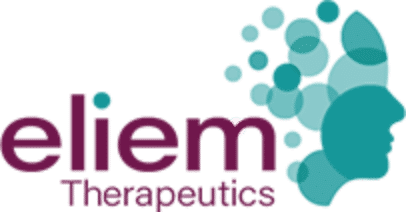NRX-101
After an earlier stumble this year with its investigational major depressive disorder therapeutic, Eliem Therapeutics appears to be back on track with a planned Phase II study of ETX-155.
After an earlier stumble this year with its investigational major depressive disorder therapeutic, Eliem Therapeutics is back on track with a
planned Phase II study of ETX-155
, the company announced Wednesday.
Based on interim results from the ongoing Phase I trial assessing ETX-155 in MDD, Eliem announced plans to initiate a Phase IIa study. The company stated a review of favorable safety, tolerability, pharmacokinetic pro preclinical data provided “the right exposure levels” that will allow the candidate to move into the next phase of development.
The Seattle-based company
previously delayed a plan to advance ETX-155
into Phase IIa following an inconclusive review of data from an early-stage study.
ETX-155 is a novel GABAA receptor-positive allosteric modulator. In a Phase Ib trial, the company observed “lower-than-expected” drug exposure levels. Eliem, which
launched last year
, then initiated a Phase I study to confirm the pharmacokinetic pro ETX-155.
Results found with the 60 mg dose, there was “no meaningful difference between exposures obtained with different batches,” the company reported. Eliem determined the low exposures observed in the Phase Ib study were within the previously reported moderate variability range.
Additionally, the company reported no irregularities or differences observed with chemistry, manufacturing and controls associated with the therapeutic.
In its announcement, Eliem noted it plans to assess a 75 mg dose of ETX-155 in the repeat dose part of the ongoing Phase I pharmacokinetic trial before announcing the dose that will be evaluated in the Phase IIa MDD study.
Final results from the Phase I pharmacokinetic trial, including the repeat dose cohort, are expected in the fourth quarter of this year. A Phase IIa study could begin in the first quarter of 2023.
ETX-155 will be moving forward into a crowded field of companies developing therapies for MDD.
Earlier this year, Axsome Therapeutics
won approval
for Auvelity, the first oral N-methyl D-aspartate (NMDA) receptor antagonist approved for this indication.
AbbVie submitted a supplemental New Drug Application for Vraylar (cariprazine), a previously approved drug for treating schizophrenia and bipolar disorder. Sage Therapeutics and Biogen also
submitted
a rolling NDA submission for zuranolone as a potential MDD treatment.
Kv7 Advancement
In addition to preparations for a Phase IIa trial of ETX-155, Eliem also announced plans to advance two candidates from its Kv7 program into IND-enabling studies. Filing of Investigational New Drug applications is expected in the first part of 2023.
Eliem’s preclinical program targets the Kv7.2/3 potassium channel, creating potential targets for treating pain and epilepsy. Phase I studies of these programs are expected to begin in the first quarter of 2024.
The company noted its Kv7 compounds have demonstrated high potency and differentiated selectivity in preclinical research. Fuller preclinical data on the Kv7 compounds are planned to be reported later in the fourth quarter of 2022.
GAD Discontinuation and Opioid Setback
While it advances its Kv7 program, Eliem announced it has discontinued early preclinical development of
a non-sedating anxiolytic for the potential treatment of generalized anxiety disorder. The company reported none of the preclinical compounds it investigated achieved the required pro enable it to move toward the clinic.
Mid-stage asset ETX-810, a non-opioid new entity, missed the mark in two separate studies this year. In April, the drug candidate failed to achieve endpoints in a Phase IIa study in diabetic peripheral neuropathic pain. As
BioSpace
previously reported
, ETX-810 failed to outperform the placebo in its primary endpoint of improving daily pain.
In August, ETX-810 failed to meet endpoints in a mid-stage study, this time as a potential treatment for lumbosacral radicular pain. Eliem
reported
that ETX-810 did not separate itself from placebo in a statistically significant manner. Based on the failures in both mid-stage studies, Eliem announced it was discontinuing the development of ETX-810.
Going Forward
“Both ETX-155 and Kv7 represent compelling product opportunities with the potential to be clinically differentiated drugs within classes where there is strong precedent clinical validation in depression and epilepsy, respectively,” said Bob Azelby, chief executive officer of Eliem, in a statement.
Despite the recent setbacks, Azelby stated the company remains well capitalized to bring its programs through key clinical data catalysts. Eliem had $129.8 million in available cash and cash equivalents as of the end of September.






